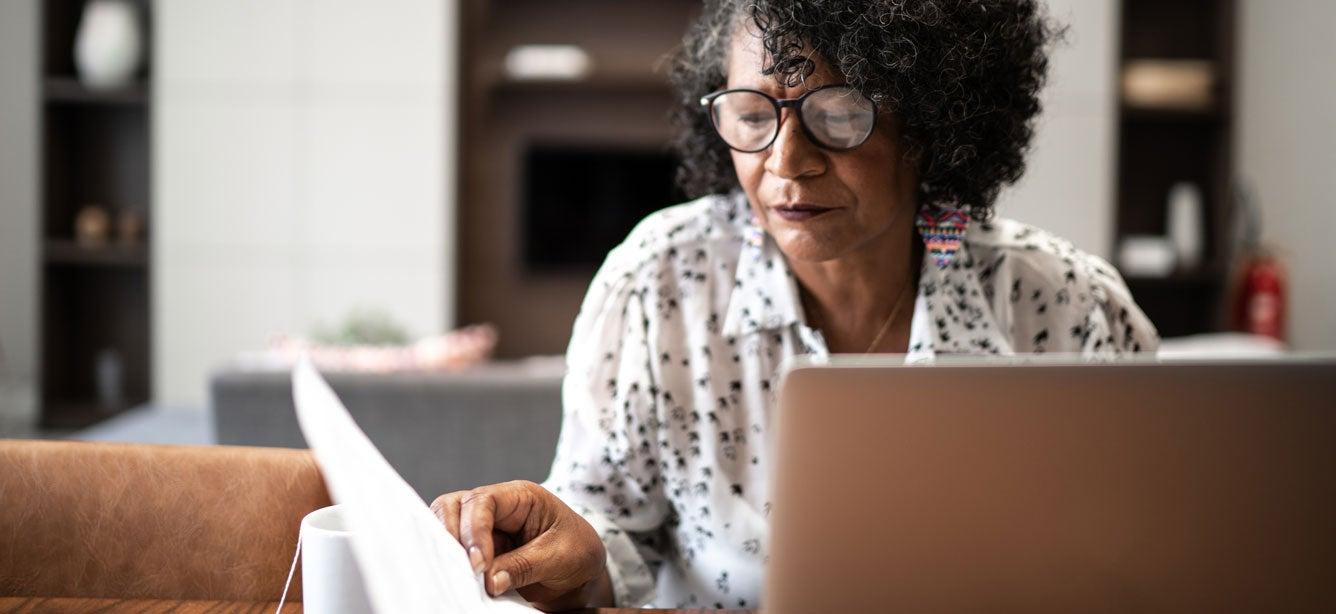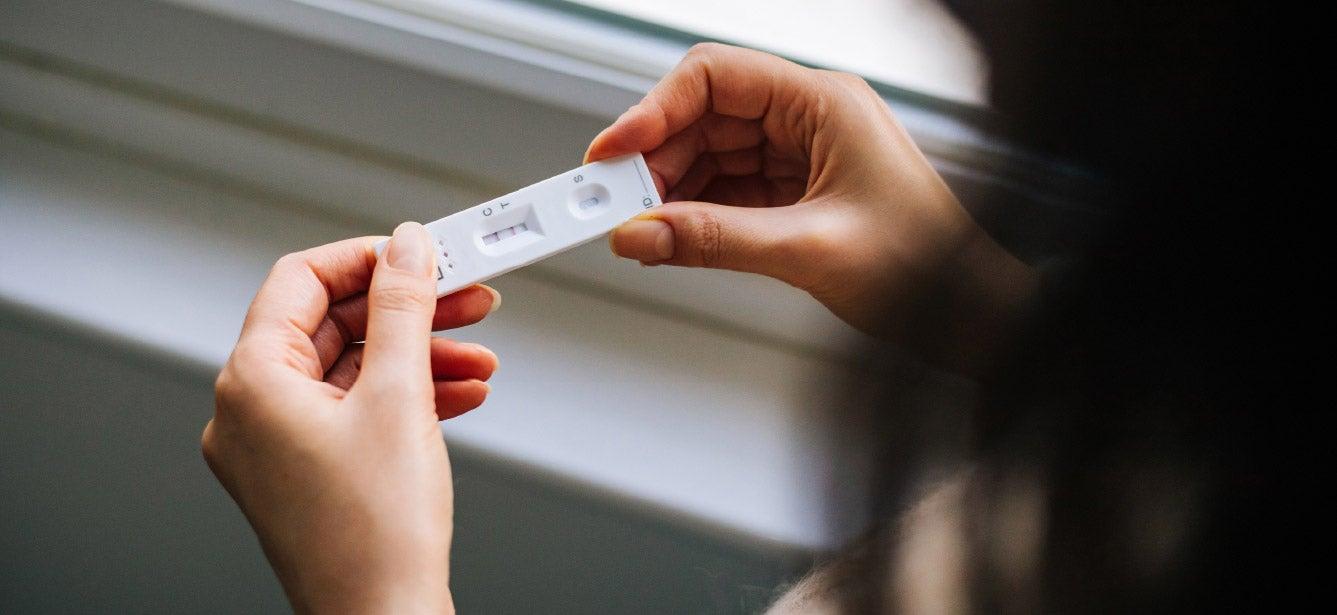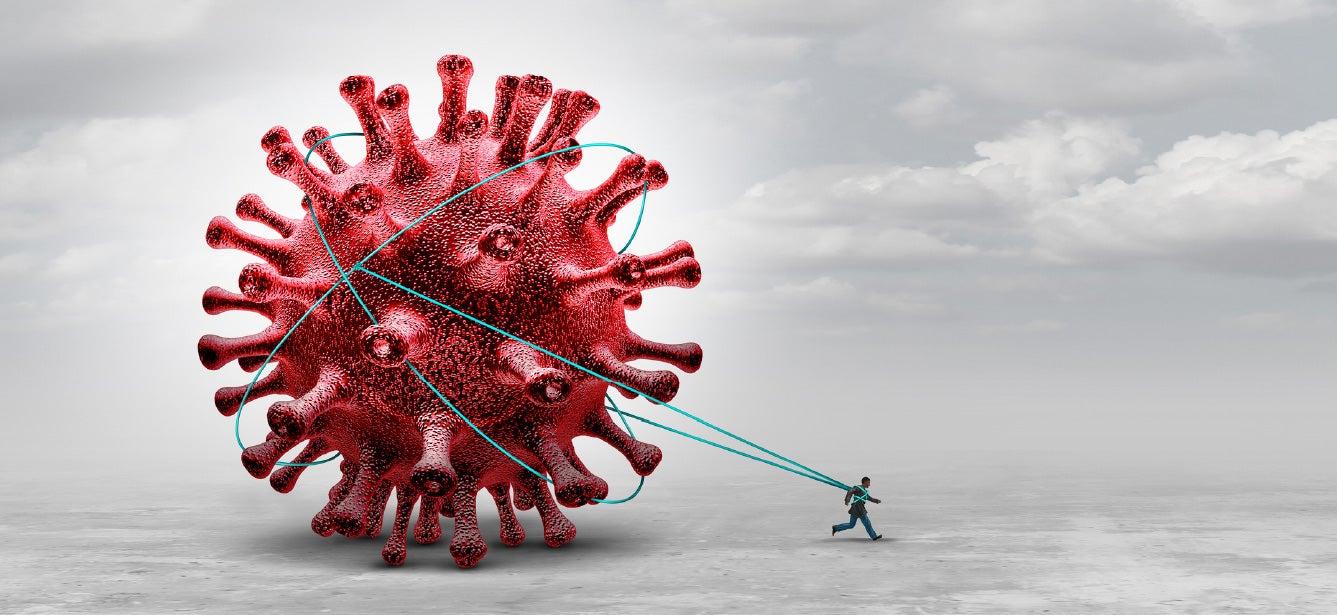Protecting Yourself with COVID and Flu Vaccines

Reduce your risk during fall and winter virus season
As we get ready for the fall and winter virus season, getting vaccinated is still the best defense against hospitalization and death related to COVID-19. Older adults continue to be at higher risk of complications due to age. As we head into the fall and winter virus season, staying up to date with recommended vaccinations can help boost your immunity and give you the most protection possible.
NCOA is committed to getting you the most accurate, up-to-date information about COVID-19 and flu vaccines so you can continue to stay healthy and do what you love.
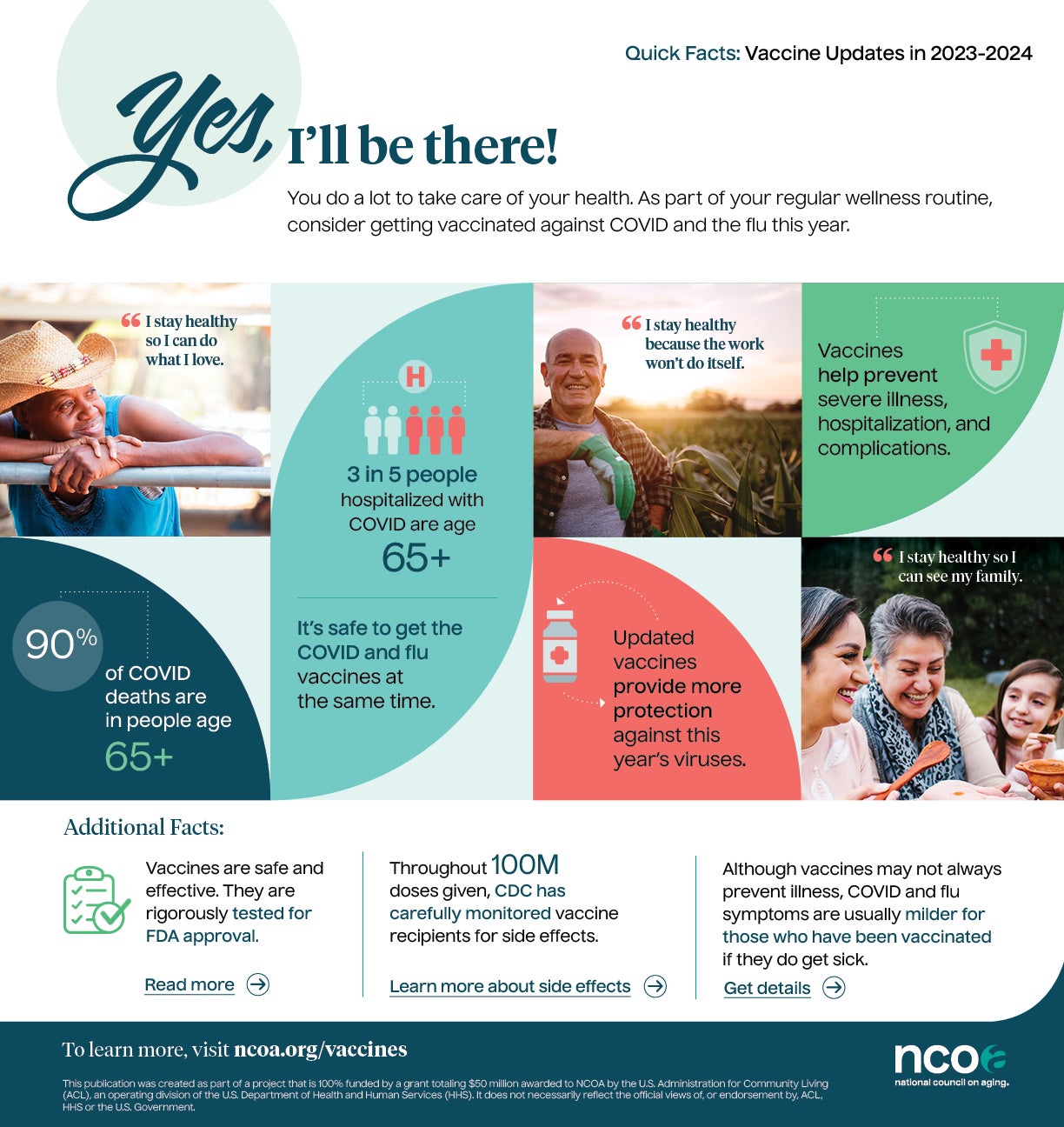
Download the infographic above to share with friends, loved ones, and your community.
Frequently asked questions about COVID-19 and flu vaccines
Is the COVID-19 vaccine safe? Yes. The COVID-19 vaccine and subsequent boosters are all FDA approved. FDA has a rigorous approval process to determine both safety and efficacy. Hundreds of millions of Americans have safely received seasonal flu and COVID-19 vaccines.
What are the advantages of getting vaccinated against COVID-19 and the flu? Although vaccines do not always prevent illness, COVID and flu symptoms are usually milder for those who have been vaccinated, when compared to those who did not get vaccinated. Those who have gotten the vaccine are also more likely to stay out of the hospital and have a lower risk of death from COVID or the flu. People over 65, some people with disabilities, and those who have compromised immune systems are higher risk of getting COVID-19 and the flu, but according to the Department of Health and Human services, vaccines among Medicare beneficiaries resulted in 670,000 fewer hospitalizations and 330,000 fewer deaths in 2021 alone.
Will I have side effects from the COVID-19 or flu vaccine? Maybe. Some people experience side effects from vaccines such as achiness, fever, or chills. These side effects are usually mild and subside after a few days. Serious adverse events after vaccination are extremely rare, and vaccine safety is continually monitored.
Will a vaccine prevent me from getting sick? Getting vaccinated doesn’t guarantee you won’t get COVID or the flu. However, COVID and flu symptoms are usually milder for those who have been vaccinated, when compared to those who did not get vaccinated. Those who have gotten the vaccine are also more likely to stay out of the hospital and have a lower risk of death from COVID or the flu.
Can I get COVID-19 or the flu from a vaccine? No. None of the COVID-19 vaccines authorized in the United States contain the live virus that causes COVID-19, so the vaccine cannot make you sick with COVID-19.
Flu vaccine shots contain either inactivated virus, meaning the viruses are no longer infectious, or a particle designed to look like a flu virus to your immune system. The nasal spray flu vaccine does contain a live virus, but the viruses are changed so that they cannot give you the flu. You may have a reaction to the vaccine that includes feeling ill or achy, but that is not the flu or COVID-19. It’s a side effect from the vaccine that will go away in a few days.
Why do I need another COVID-19 vaccine? Even after you are fully vaccinated, protection against the virus naturally decreases over time. Adults over 65 and many people with disabilities are more likely to suffer complications, be hospitalized, and die from COVID-19. Getting the most current COVID-19 vaccine gives you added protection from the strains that are currently circulating.
Your next steps in getting vaccinated
Ask your health care provider about getting up to date on your vaccines.
Vaccines.gov can also help you find a convenient location to get your COVID-19 and/or flu vaccine.
This project was supported, in part by grant number 90CSSG0048 from the U.S. Administration for Community Living, Department of Health and Human Services, Washington, D.C. 20201. Grantees undertaking projects under government sponsorship are encouraged to express freely their findings and conclusions. Points of view or opinions do not, therefore, necessarily represent official Administration for Community Living policy.
More COVID-19 & Flu Vaccine Resources
COVID Vaccines: What Older Adults Need to Know

What Older Adults Need to Know During Flu Season
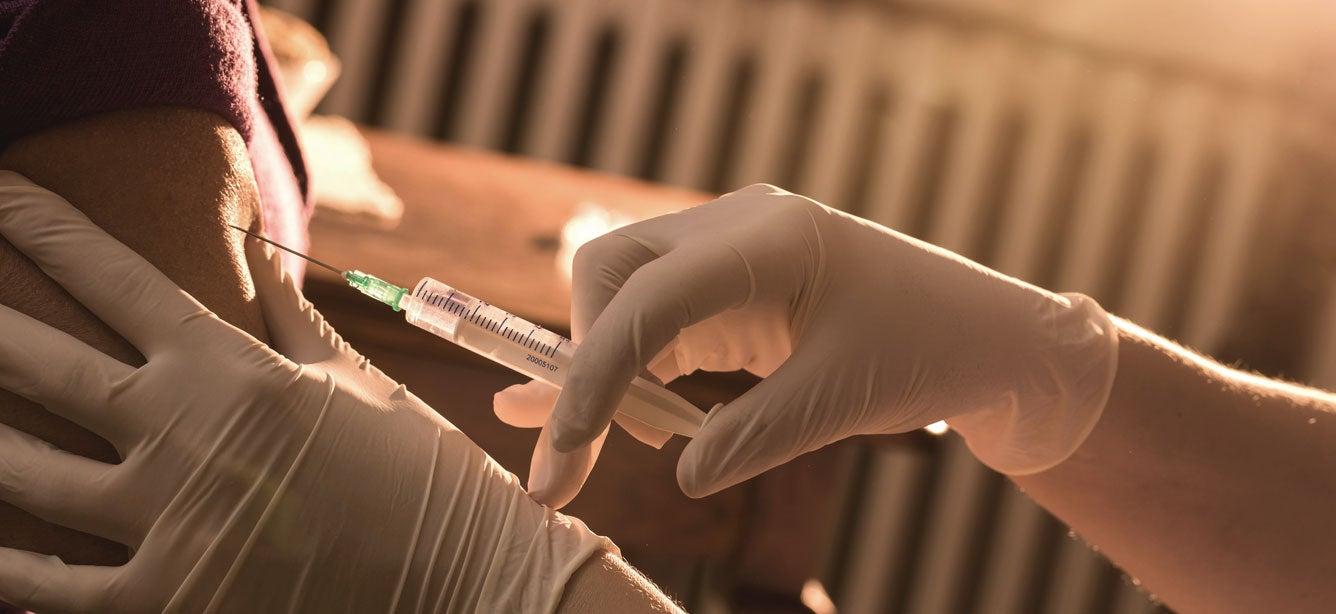
What Vaccinations Should Grandparents Get?
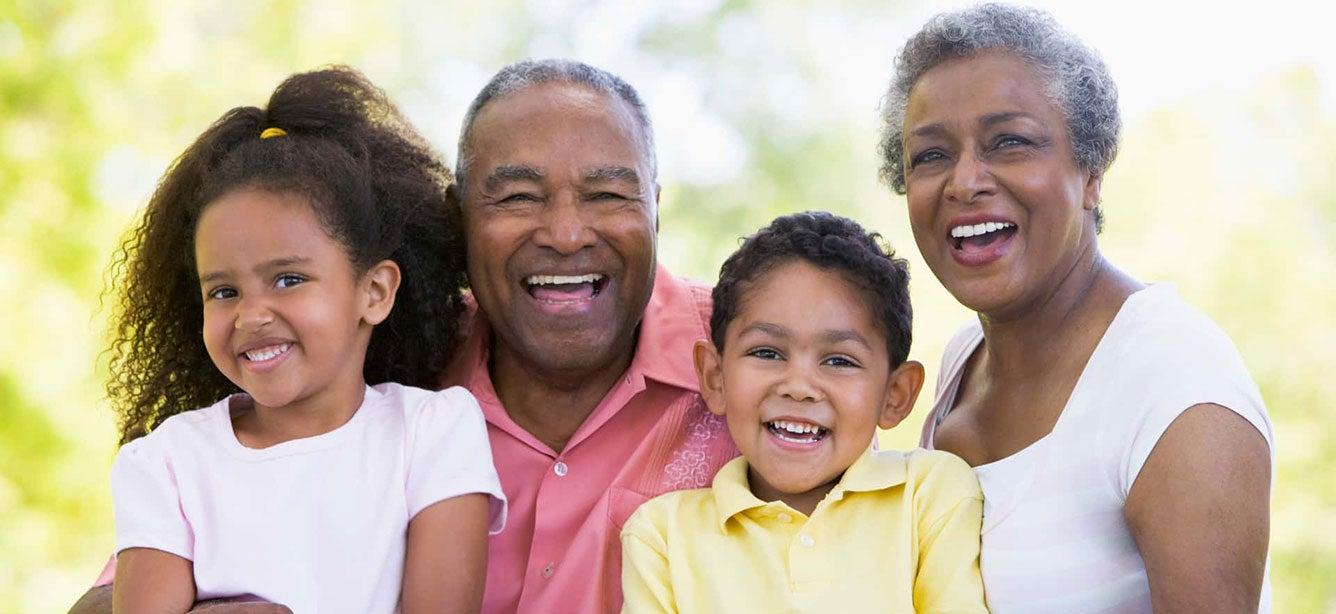
What to Know About COVID-19 Tests
COVID-19 testing is a powerful tool for limiting the spread of the virus and getting back to normal life. This guide is designed to help you determine when and where to get tested—and what to do if you test positive for SARS-CoV-2, the virus that causes COVID-19.
More About COVID-19
Find and Download More Resources
Access more of NCOA's Vaccine Uptake Initiative resources, from the grantee directory to toolkits to accessing the mandatory monthly TA Calls, and so much more.
